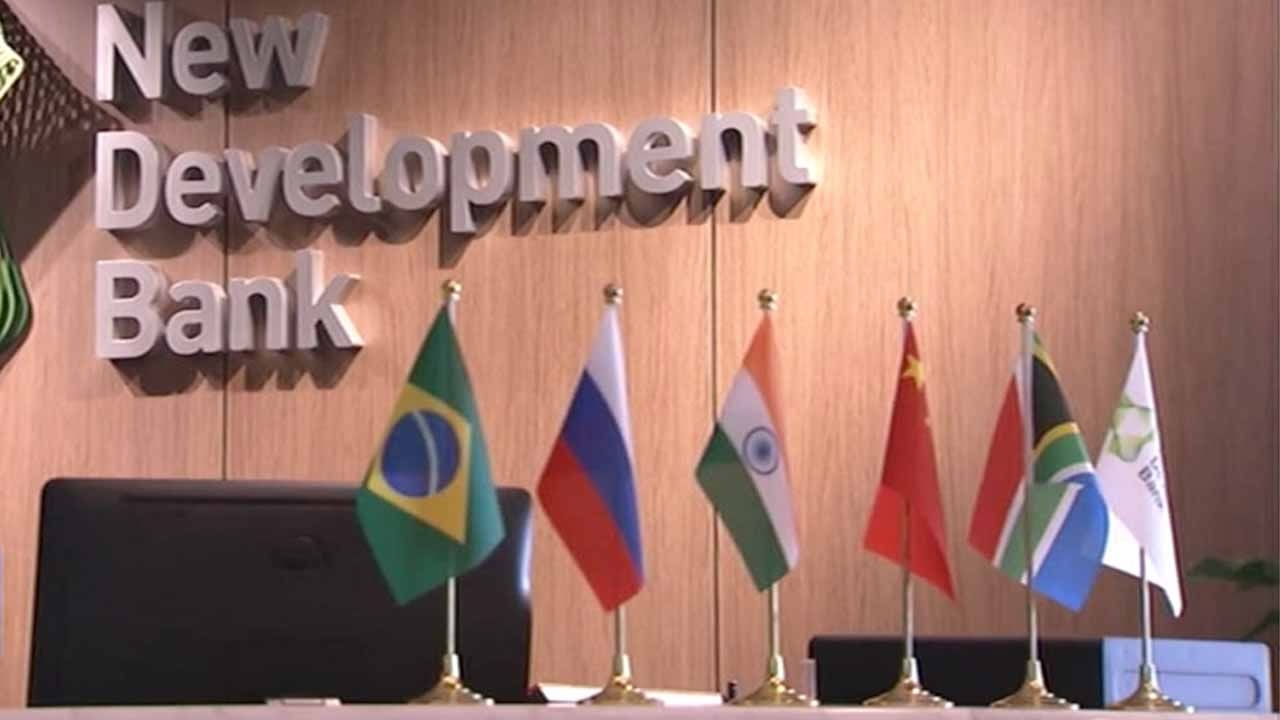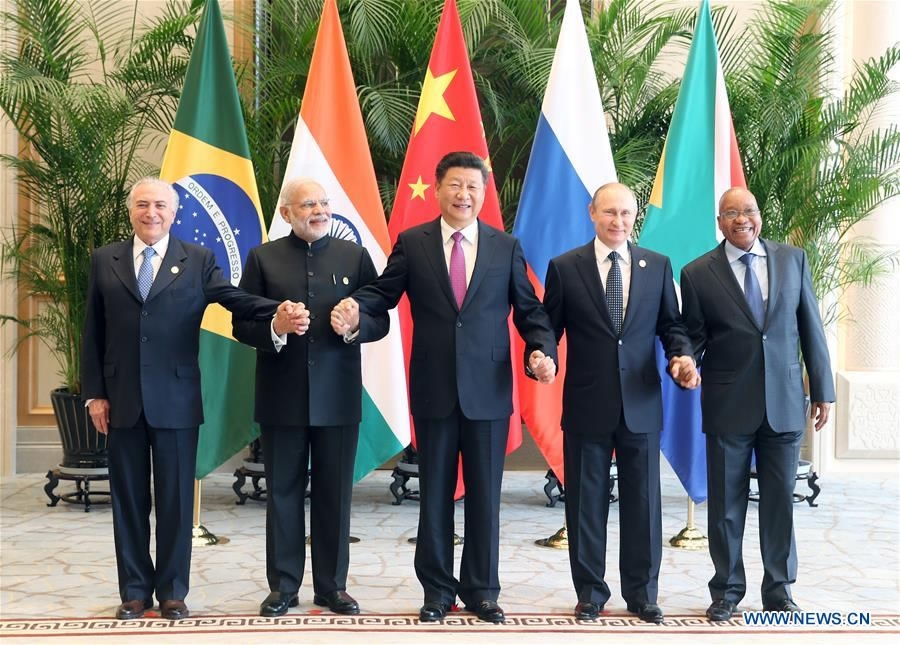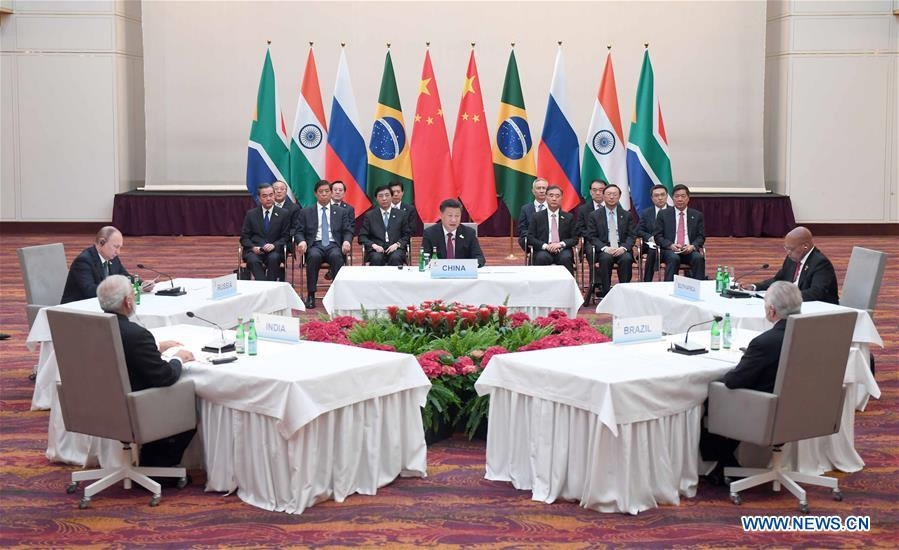
Politics
22:00, 28-Aug-2017
Expert: China plays multiple roles in BRICS
By Zou Yun

This year's BRICS summit is around the corner, with China the host country. But what is China's biggest contribution in setting the agenda, and what role does the country play within the BRICS community?
After a decade of growth and development, the BRICS community has evolved into an economically significant group that plays a vital role in global governance.
Wang Lei is one of the first Chinese experts to research BRICS-related issues. He said China has been a pioneer in this process, with its efforts in policy consultation as well as many new proposals resulting from China's endeavors. In addition, he said that China also plays multiple roles in enhancing cooperation among the member states.

Chinese President Xi Jinping (C) and leaders of India, South Africa, Brazil and Russia attend a BRICS leaders' meeting on the sidelines of the G20 summit in Hangzhou in east China's Zhejiang Province, September 4, 2016. /Xinhua Photo
Chinese President Xi Jinping (C) and leaders of India, South Africa, Brazil and Russia attend a BRICS leaders' meeting on the sidelines of the G20 summit in Hangzhou in east China's Zhejiang Province, September 4, 2016. /Xinhua Photo
"China is the status quo leader, as we know China is the biggest economy within the group, and China is playing more and more role in terms of pushing forward the reform upon the existing multilateral financial as well as economic and political systems. And finally, China is also a kind of coordinator in BRICS cooperation. As we know China is the biggest country with the BRICS, and China could be capable enough to coordinate and pushing forward cooperation with the BRICS, especially for the other big players such as Russia and India to reach consensus and compromises for the future orientation of BRICS," Wang said.
As the host of this year's BRICS summit, China plays a key role in setting the agenda of the meeting. Wang said that China has contributed greatly to pushing forward the institutionalization of the BRICS countries. This will not only help enhance collaboration in various sectors, but also improve efficiency and optimize resources in cooperation.
"There are around more than 60 different mechanisms and systems within the BRICS, but now it's time for them to coordinate and cooperate with each other. As for the distribution of labor among different mechanisms, the second is about China's efforts to push forward the solidarity building as well as the unity building for the BRICS," he added.

Chinese President Xi Jinping presides over an informal BRICS leaders' meeting in Hamburg, Germany, July 7, 2017. /Xinhua Photo
Chinese President Xi Jinping presides over an informal BRICS leaders' meeting in Hamburg, Germany, July 7, 2017. /Xinhua Photo
Wang also noted that the Belt and Road Initiative is a valuable platform for BRICS members to solidify their existing partnership, as both platforms share similar principles, and all BRICS member states play important roles in the initiative.
"They pursue dreams, political and economic goals by means of achieving those goals through coordination and cooperation, rather than the distribution of power as well as power balances among the big powers," Wang noted.
As a pioneer of the BRICS, China plays an important role in boosting the pragmatic cooperation among all members. And it's expected that in the next 10 years, those member countries will also enhance cooperation with other emerging economies, while playing a bigger role in international affairs.

SITEMAP
Copyright © 2018 CGTN. Beijing ICP prepared NO.16065310-3
Copyright © 2018 CGTN. Beijing ICP prepared NO.16065310-3